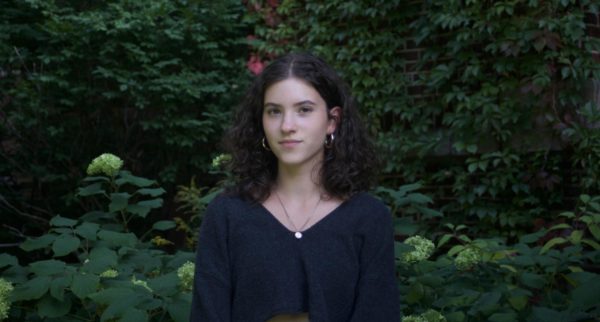Opinion | Winter always proves to be the most difficult season for students
After a tumultuous winter break, ETHS students have attempted to return to normalcy during the third quarter. However, the transition back to school was not easy for many; between heavy workloads, awful weather and seasonal depression, it’s been difficult for students to stay focused and maintain good grades during this harsh Evanston winter.
Freshman Ray Chambers details his struggles with what is commonly known as seasonal depression.
“I mainly experienced it during winter,” Chambers says. “It had a huge impact on me and my friends. …I can’t really focus.”
This is actually much more common than one might think. Seasonal depression impacts 10 million Americans each year and is partially attributed to the fact that daylight ends earlier in fall and winter. It can cause moodiness, sluggishness and a lack of motivation. Usually, most people’s symptoms resolve in spring and summer, which is why many students start to lose focus in school during the winter.
“I think winter is a tough time for most students. My peers seem a lot less engaged and motivated,” freshman Pasha Rosin explains.
Even for students who don’t struggle with seasonal depression, winter can still seem bleak. To compound this problem, Chicago winters are notorious for being cold and snowy. For many students, this weather causes challenges focusing in class.
According to Klima-Therm, “A cold room will keep you awake, [since] your body is having to use its energy to keep warm, thus reducing the ability to concentrate.” While it’s true that most schools have indoor heating systems, they can’t be relied upon to keep a classroom at the optimal temperature for learning. Many classrooms are drafty or not well insulated, leading to colder room temperatures that distract students from learning at their best.
Another challenge this awful weather could cause for students is actually getting to school. Many ETHS students rely on public transportation to get to and from school, and in the winter, this has the potential to make every morning difficult. In Evanston, the average maximum temperature in January during the day is 30 degrees Fahrenheit. This is a huge inconvenience for students who have to take the bus; walking to the stop and having to wait in below freezing temperatures can be dangerous and stressful. Sometimes, buses don’t even come, leaving students to walk all the way to ETHS in terrible weather conditions. Students who bike or walk to school on the daily also face problems relating to the cold weather, such as iced over roads. This makes the commute to school difficult for many.
“I feel as though it’s harder for students to get to school and back because of the harsh weather conditions, and this obviously affects their attendance and work,” Rosin continues.
To make matters worse, the third quarter is arguably the hardest quarter of the school year. The transition back into school from winter break is a struggle for many, which was compounded this year by the COVID-19 outbreak and the aftermath of a traumatic lockdown.
“After such a long break, I noticed the work being assigned varied between my classes, some giving out more than usual,” Rosin concludes.
The winter months are bleak enough on their own but can become almost unbearable with that extra layer of work. Many teachers assign summative projects near the beginning of the third quarter that become long-term stressors for students; there’s always something to be working on. This can be especially difficult for students struggling with seasonal depression in winter, which, as aforementioned, can cause a severe lack of motivation and focus. Seasonal depression combined with a large workload can also affect a student’s sleep schedule; staying up late to finish homework can contribute to the alteration of one’s circadian rhythm. This makes it harder to fall asleep and stay asleep, which can have detrimental health effects.
Winter is an incredibly hard month for students. Seasonal depression is a very real struggle that can affect sleep, focus, and motivation. Cold weather impairs many student’s abilities to get to school on time and stay focused. The transition back to school from winter break can be a huge struggle for many, and the third quarter workload isn’t helping. In a climate like Evanston’s, winter is surely the worst month for students, especially since it usually lasts ridiculously long.
However, as the days begin to get longer and the snow begins to melt, students should stay hopeful as school transitions into the final quarter of the year. While winter may feel like rock bottom for many, there’s only one way to move from there.
Your donation will support the student journalists of the Evanstonian. We are planning a big trip to the Journalism Educators Association conference in Philadelphia in November 2023, and any support will go towards making that trip a reality. Contributions will appear as a charge from SNOSite. Donations are NOT tax-deductible.












